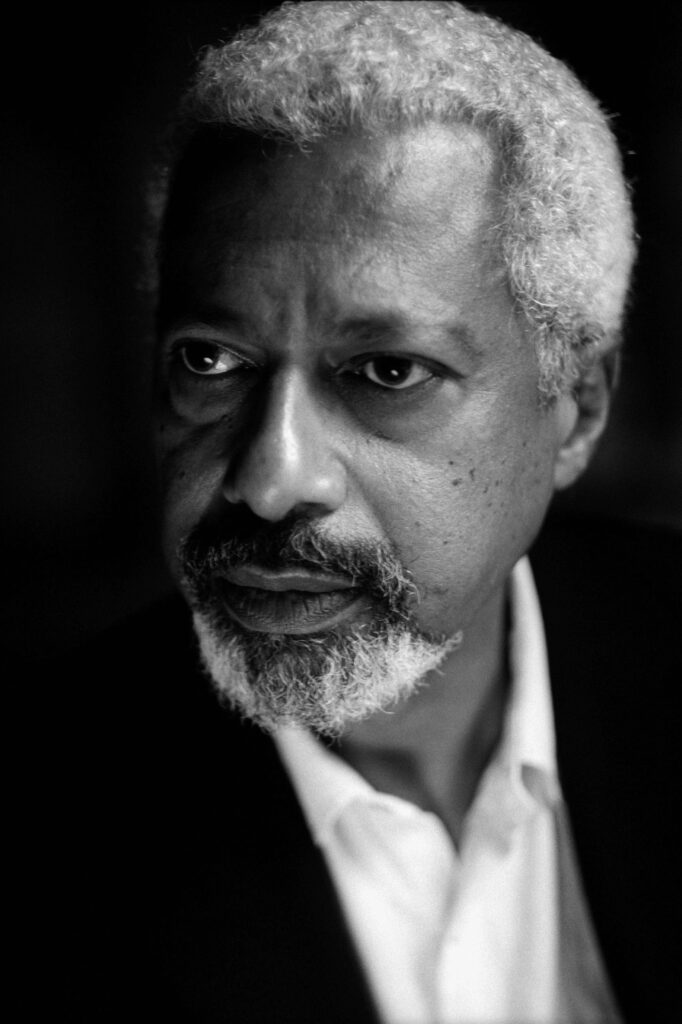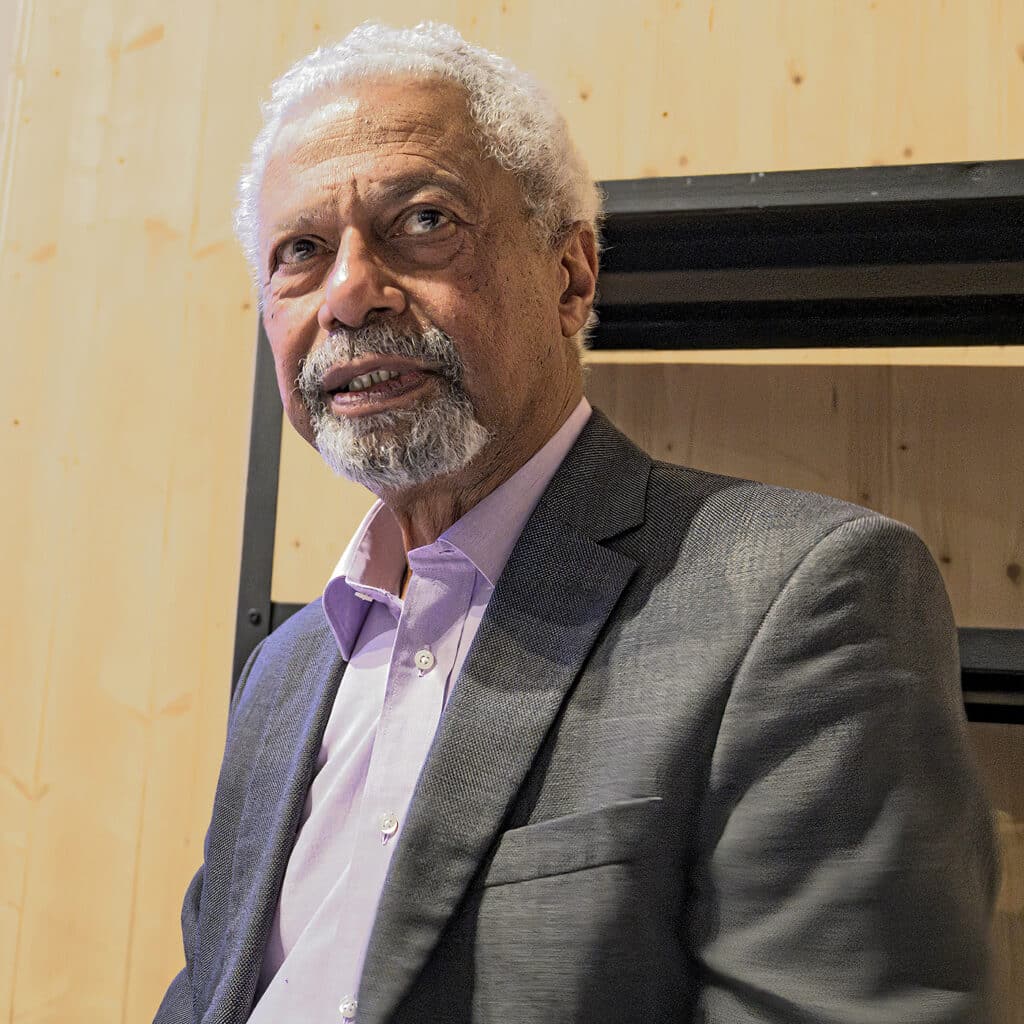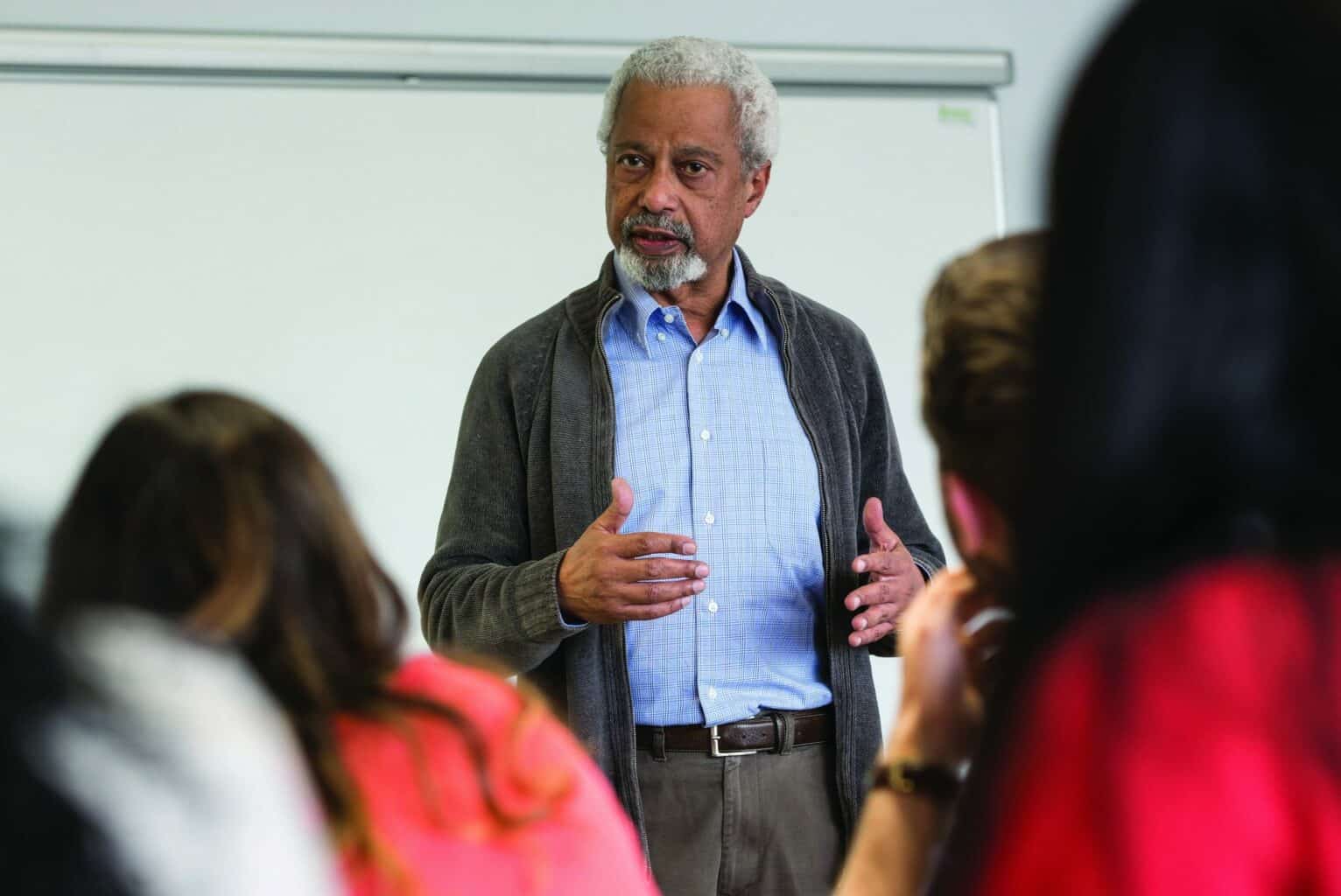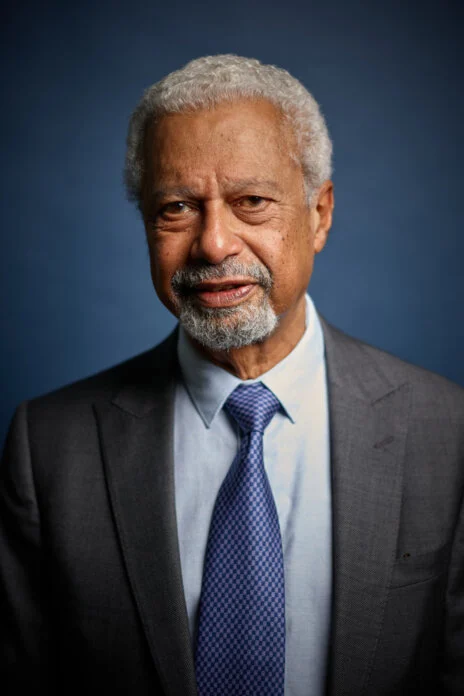Get your subscription for the 2022/23 Portland Arts & Lecture Series to see Abdulrazak Gurnah on September 22nd! Click here for more information.

On September 22nd, Literary Arts will host Abdulrazak Gurnah as the first event of our 2022-23 season of Portland Arts & Lectures.
Abdulrazak Gurnah is a celebrated novelist, and was awarded the Nobel Prize in Literature in 2021. The Nobel Prize committee cited his “uncompromising and compassionate penetration of the effects of colonialism and the fate of the refugee in the gulf between cultures and continents” for his win. Gurnah’s novels include Memory of Departure, Pilgrims Way, Dottie, Paradise, which was shortlisted for the 1994 Booker Prize, Admiring Silence, By the Sea, Desertion, The Last Gift, Gravel Heart, and most recently, Afterlives.
What role does fiction play in how we look at historical events?
Gurnah gives his thoughts on this question, talks about what it was like to get the Nobel Prize, and more in this interview with iNews.

“Fiction bridges that popular lack of knowledge by humanizing the events it describes. Facts can be taken on board or ignored. But you can’t ignore fiction because, if it works, it goes deep.”

Gurnah fled from his home in Zanzibar at the age of 18 to escape political violence and danger. How does being forced from where you were born impact the life and focus of a writer?
In this interview with The Guardian, he discusses his own story of leaving, returning, and writing about his native land.
“Writing [came] out of the situation that I was in, which was poverty, homesickness, being unskilled, uneducated. So out of that misery you begin to write things down. It wasn’t like: I’m writing a novel.”
While Gurnah has been writing critically acclaimed novels about refugee life and the effects of colonialism for years, some of his work is relatively unknown in the U.S.
Unsure which of his books to pick up? Check out this list from the Los Angeles Times to help you figure out where to start.

“That’s the condition of being a stranger and living somewhere other than your ancestral home… Nothing is over. Your present is a strangeness and you cannot get rid of your past.”
Want to know more? Here’s a more in depth look at Gurnah’s life and career.
Abdulrazak Gurnah was born in Tanzania in 1948. When he was eighteen, he had to leave his family and flee his home to escape the dangerous and oppressive regime that formed following the Zanzibar Revolution. He relocated to Canterbury, England, where he attended college, and was unable to revisit his home until 1984, not long before his father passed away. Many of these events contribute to what he explores in his work—the effects of imperialism, displacement, and trauma. When asked in an interview with Time what makes him continue to write about these themes, he said, “Partly because it’s my experience, but also because it’s very much a phenomenon of the times we live in. Writing about dislocation or strangers finding themselves unwelcome is not to invent anything. It’s to write about what’s right in front of our eyes.”
In his younger years, he did not think to call himself a writer, nor did he think that writing was a valid career path to declare. It wasn’t until he was in his 20s that his experience as a refugee led him to document his thoughts in a diary. This snowballed into writing longer reflections, stories, and eventually, novels. “The thing that motivated the whole experience of writing for me,” Gurnah once said in an interview, “was this idea of losing your place in the world.” His first language, Swahili, along with Arabic and German, often show up in his writing—another part of his world that he has had to work to keep from losing, this time to literary convention. When publishers of his work have tried to italicize or otherize non-English language in his novels, he has resisted. “There’s a way in which British publishing, and perhaps American publishing as well, always wants to make the alien seem alien,” he has said.
In 1976, he received his B.Ed from Canterbury Christ Church. It was around this time he completed the first draft of what would become his debut novel, Memory of Departure. He went on to earn a Ph.D from University of Kent in 1982, while still revising his manuscript, until it was published in 1987. The book was called a “fierce, vivid first novel,” and “a haunting portrait of a traditional society collapsing under the weight of poverty and rapid change” in a New York Times review.
To date, Gurnah has published ten novels, including Paradise, which was shortlisted for the Booker Prize and the Whitbread Prize, By the Sea, which was longlisted for the Booker Prize and shortlisted for the Los Angeles Times book prize, and Desertion, which was shortlisted for the Commonwealth Writers’ Prize. He was made a Fellow of the Royal Society of Literature in 2006 and served as a Booker Prize Judge in 2016. In 2021, he was awarded the Nobel Prize for Literature for “his uncompromising and compassionate penetration of the effects of colonialism and the fate of the refugee in the gulf between cultures and continents.”
Afterlives, Gurnah’s most recent novel, was published in the U.K. in 2020, and in the U.S. in August 2022. Set in Tanganyika (now Tanzania) in the early 20th century, the book looks at the devastating effects of German colonialism, and the fractured lives of individuals and society in East Africa. Afterlives was shortlisted for the 2021 Orwell Prize for Political Fiction and longlisted for the 2021 Walter Scott Prize. The Daily Telegraph called it “a powerfully evocative oeuvre that keeps coming back to the same questions, in spare, graceful prose, about the ties that bind and the ties that fray.” In a review for The Guardian, Maaza Mengiste said, “In a world that uses the destructive eruptions of warfare as markers of history, Gurnah shows us a global conflict from the point of view of those who decided to look towards each other, and live.”
Gurnah has also had a long career as an editor. Since 1987 he has served in various editorial and other capacities for the literary magazine Wasafiri. He is also the editor of Essays on African Writing 1: A Re-evaluation, Essays on African Writing 2: Contemporary Literature, and The Cambridge Companion to Salman Rushdie.
Today, Gurnah lives in Canterbury, after retiring as Emeritus Professor of English and Postcolonial Literatures at the University of Kent in 2017. Even though he has not lived in his native Tanzania since the 1960s, his birthplace continually finds its way into his writing. Being at a distance geographically does not prevent him from writing about his home. He has said, “It’s all in the fiber of everything you are.”
“I believe that writing also has to show what can be otherwise, what it is that the hard domineering eye cannot see, what makes people, apparently small in stature, feel assured in themselves regardless of the disdain of others. So I found it necessary to write about that as well, and to do so truthfully, so that both the ugliness and the virtue come through, and the human being appears out of the simplification and stereotype. When that works, a kind of beauty comes out of it.”


